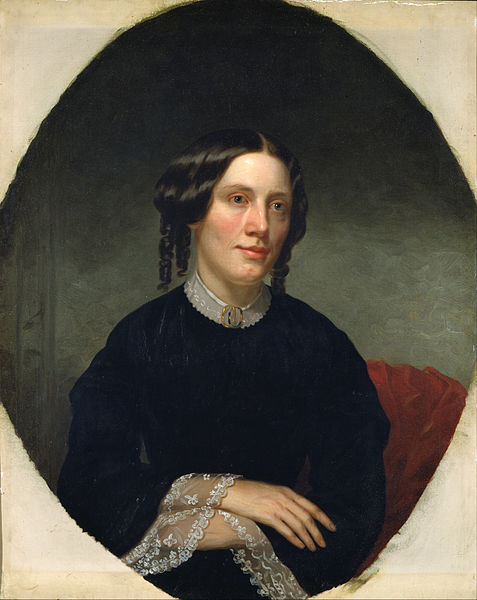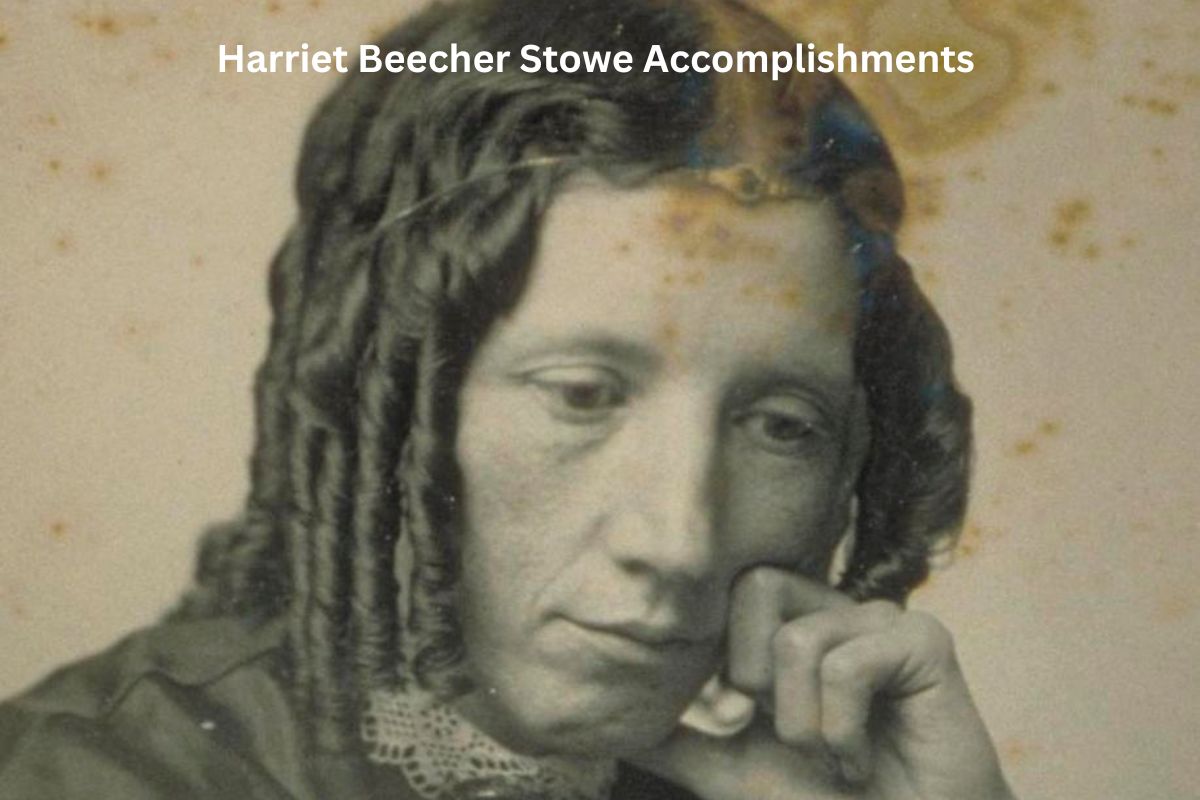Harriet Beecher Stowe was an influential American author and abolitionist who rose to prominence in the 19th century.
Her most famous work, “Uncle Tom’s Cabin,” brought attention to the horrors of slavery and played a significant role in shaping public opinion on the issue.
Stowe’s accomplishments extended beyond her impactful writing, as she was also a vocal advocate for women’s rights and actively engaged in philanthropic endeavors.
Her work and activism left a lasting impact on American history, inspiring generations of activists and contributing to the fight against slavery and discrimination.
Accomplishments of Harriet Beecher Stowe
1. Wrote “Uncle Tom’s Cabin”
Harriet Beecher Stowe’s most renowned accomplishment is her novel “Uncle Tom’s Cabin,” which was published in 1852. The book is a powerful portrayal of the harsh realities of slavery in the United States.
Also Read: Facts About Harriet Beecher Stowe
It follows the lives of several enslaved individuals, including the protagonist Uncle Tom, and exposes the brutalities and injustices they faced.
“Uncle Tom’s Cabin” became a cultural phenomenon and had a profound impact on public opinion, helping to galvanize support for the abolitionist cause.

2. Influenced the abolitionist movement
Through the publication of “Uncle Tom’s Cabin,” Stowe became a prominent figure in the abolitionist movement. The novel resonated with readers across the country, igniting conversations and debates about the morality of slavery.
Also Read: Timeline of Harriet Beecher Stowe
It stirred empathy and compassion for enslaved individuals and contributed to a growing sentiment against the institution of slavery.
Stowe’s work effectively challenged the pro-slavery arguments of the time and helped to mobilize and energize abolitionists in their fight for freedom and equality.
3. Gained international recognition
“Uncle Tom’s Cabin” achieved remarkable success not only in the United States but also internationally.
Translated versions of the novel were published in various languages, introducing the world to the atrocities of American slavery. The book’s global impact cannot be understated, as it played a crucial role in raising awareness about the horrors of slavery worldwide.
Stowe’s work resonated with readers from different cultures and backgrounds, inspiring anti-slavery movements in other countries and contributing to the growing global momentum against slavery.
4. Humanized enslaved characters
One of the significant accomplishments of Harriet Beecher Stowe’s “Uncle Tom’s Cabin” was her portrayal of enslaved characters as multifaceted individuals with emotions, dreams, and aspirations.
In a time when African Americans were often depicted in literature and popular culture as stereotypes or caricatures, Stowe’s novel offered a more nuanced and empathetic representation.
By highlighting the humanity of the enslaved, she challenged prevailing racist narratives and sparked empathy and understanding among readers.
5. Advocated for women’s rights
Harriet Beecher Stowe was a staunch advocate for women’s rights and gender equality. She recognized the interconnectedness of various social justice causes and believed that women’s rights were integral to the fight against slavery.
Stowe used her platform and influence to promote women’s suffrage, equal educational opportunities for women, and greater representation in public life.
She argued that women should have a voice in shaping the direction of society and actively participated in the women’s rights movement of her time.
6. Engaged in philanthropy
Stowe’s commitment to social justice extended beyond her writing and advocacy. She actively engaged in philanthropic efforts to support causes she believed in.
For instance, she established the Ladies’ Association of Cincinnati, which aimed to raise funds for schools and education for freed slaves in the South.
Stowe also donated a significant portion of the proceeds from her writings to charitable initiatives, including educational programs for African Americans.
Her philanthropy demonstrated her dedication to making a tangible impact on the lives of marginalized communities and advancing social progress.
7. Had a successful writing career
While “Uncle Tom’s Cabin” is Harriet Beecher Stowe’s most well-known work, she had a prolific writing career beyond that iconic novel. Stowe authored numerous other works, including novels, essays, and articles, addressing a wide range of social and moral issues of her time.
Some notable works include “Dred: A Tale of the Great Dismal Swamp” (1856), which explored the topics of race and freedom, and “The Minister’s Wooing” (1859), which delved into themes of love, religion, and social expectations.
8. Came from an influential family
Harriet Beecher Stowe hailed from a family of influential thinkers and activists. Her father, Lyman Beecher, was a prominent Congregationalist minister known for his involvement in social reform movements.
Stowe’s siblings also made significant contributions to society as theologians, educators, and social reformers. Growing up in this intellectually and socially engaged environment undoubtedly shaped Stowe’s own beliefs and commitment to making a difference in the world.
9. Participated in public speaking engagements
In addition to her writing, Harriet Beecher Stowe actively engaged in public speaking engagements. She delivered lectures on various topics, including abolitionism, women’s rights, and social justice.
Stowe’s speeches were known for their passionate and persuasive style, captivating audiences and inspiring action. Her ability to articulate her beliefs and connect with people on a personal level helped amplify her impact as an influential voice of her time.
10. Left a lasting impact on American history
Harriet Beecher Stowe’s accomplishments and contributions left a lasting impact on American history. “Uncle Tom’s Cabin” is often credited with helping to pave the way for the American Civil War by shedding light on the cruelties of slavery and galvanizing public sentiment against it.
Stowe’s writings and advocacy efforts inspired generations of activists in their fight against slavery and discrimination. Her work remains relevant today, serving as a reminder of the power of literature and activism to effect social change and shape the course of history.
